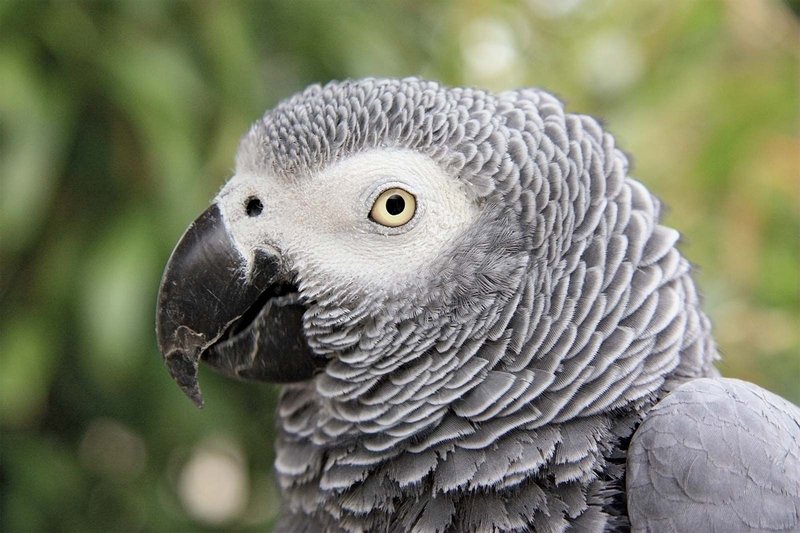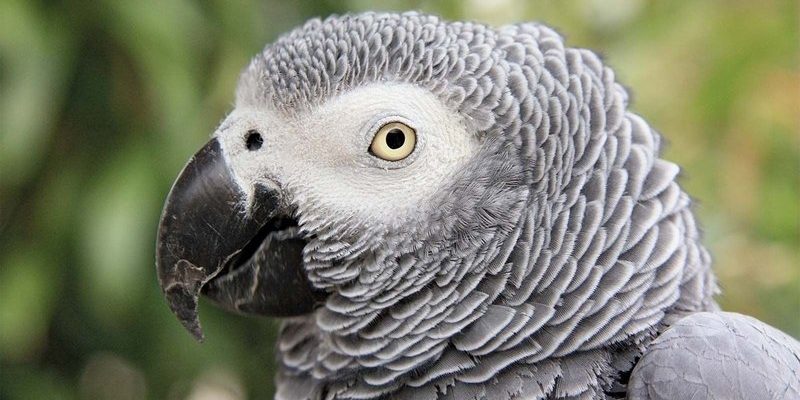
But there’s a lot more to these birds than meets the eye. They’re not just living party tricks; they have rich, vibrant lives that are worth exploring. So, grab your coffee, and let’s dive into ten captivating facts about the African Grey parrot that you might not know!
1. Incredible Intelligence
Here’s the thing: African Greys are often labeled as the smartest of all parrot species. Their intelligence is no joke! Studies have shown that they can perform tasks that rival those of a four to six-year-old child. Imagine teaching your child a new word and them using it in the right context days later. That’s what African Greys do! They excel in problem-solving and can even understand concepts like shape and color recognition.
These clever birds can learn a massive vocabulary—up to 1,000 words! They can accurately mimic human speech and may even use words to express their feelings or needs. For instance, if your African Grey says “hello” when you walk into the room, it’s not just mimicking; it’s truly acknowledging you.
2. A Lifespan Like No Other
If you’re considering bringing an African Grey into your home, prepare for a long-term commitment. These birds can live for over 50 years in captivity! Yes, you read that right—fifty years! That’s longer than many pets and even some relationships.
Because of their long lifespan, it’s vital to provide them with a stable environment. They thrive on routine and can get stressed with sudden changes. Think of it as adopting a feathered family member who could outlive some of your furniture.
3. Unique Personality Traits
Each African Grey has its own distinct personality. Some are friendly and social, while others can be quite reserved. They’re known to form strong bonds with their human companions, often seeking attention and affection. Honestly, if you’re looking for a pet that’s more than just a cute face, an African Grey can be a perfect fit.
You might find them engaging in amusing antics or developing quirky habits. One African Grey might enjoy sitting on your shoulder while you work, whereas another could prefer playing with toys alone. Their personalities can change based on how you interact with them, so you’ll get a unique flavor of companionship!
4. They Need Plenty of Mental Stimulation
Let me explain something important: African Greys are not your average pet. They require constant mental stimulation to avoid boredom and develop behavioral issues. You wouldn’t want your smart friend sitting in a corner all day, right?
To keep them engaged, provide a variety of toys, puzzles, and challenges. Interactive games can also be a great way to bond with your Grey. Try hiding treats in toys or teaching them new tricks. This not only entertains them but also strengthens your connection.
5. Social Needs Are Key
African Greys are incredibly social birds. In the wild, they live in flocks, forming strong bonds with their companions. If they’re kept alone in a cage for long periods, they can become lonely and develop anxiety. It’s like having an introverted friend who doesn’t get enough social interaction—they’ll get moody!
If you can’t be home with your Grey all day, consider adopting a second bird or providing lots of interactive activities. They thrive on companionship, so you’ll need to be ready for some quality time every day.
6. They Have a Specific Diet
Feeding an African Grey isn’t just about scattering birdseed in a bowl. They require a balanced diet rich in various nutrients. Think of their diet like you would for a young child; it should be colorful and diverse! Fresh fruits, vegetables, nuts, and high-quality pellets should make up their meals.
Here’s a quick breakdown of foods to include:
- Fruits: Apples, bananas, berries
- Vegetables: Carrots, leafy greens, peppers
- Nuts: Almonds, walnuts (in moderation)
Even small changes in their diet can have a big impact on their health, so stay educated on what’s best for them!
7. Vocal Mimicry and Communication
If you’ve ever heard an African Grey talk, you know just how impressive their mimicry can be. But it’s not just about copying sounds; they can often use words in context. Imagine your bird greeting you with “Hi, how are you?” just like your partner does when you come home. They’re not just mimicking; they’re engaging!
You might be wondering how they learn these phrases. Typically, they pick them up from their environment and learn from context. If your Grey hears you say “come here” when calling your dog, they might associate that phrase with your tone and context.
8. They Can Be Clingy
African Greys can be a bit clingy when they bond with you. They adore being the center of attention and can get quite jealous if they sense you giving affection to someone else. This could be a partner, another pet, or even a toy!
While this behavior might be cute, it can also lead to possessiveness if not managed. Setting boundaries and training them to be comfortable with independence is essential. Think of it as helping a friend learn to be okay on their own while still being supportive.
9. Health Monitoring Is Essential
Keep an eye on your African Grey’s health. They can be prone to specific health issues, including respiratory problems and obesity. Regular vet checkups are a must! Just like we go for annual checkups to catch things early, your Grey needs that care too.
Additionally, be on the lookout for any changes in behavior or appetite. If your bird starts acting differently—like being less chatty or refusing food—it could be a sign they need a vet visit.
10. They’re Natural Climbers
Finally, let’s talk about how African Greys love to climb. In the wild, they spend a lot of time in trees, and they bring that instinct home. Providing them with climbing opportunities, such as play stands or ropes, is essential for their happiness.
Think of it as creating an indoor jungle gym for your feathered friend—one where they can feel active and entertained. Just make sure everything is safe and secure to prevent any accidents.
In conclusion, the African Grey parrot is not just a pet; they’re a fascinating character with a rich personality and unique needs. From their intelligence to their vocal abilities and social requirements, caring for one can be incredibly rewarding. If you’re ready for the commitment, these charming birds can bring joy and companionship into your life for many years to come.

